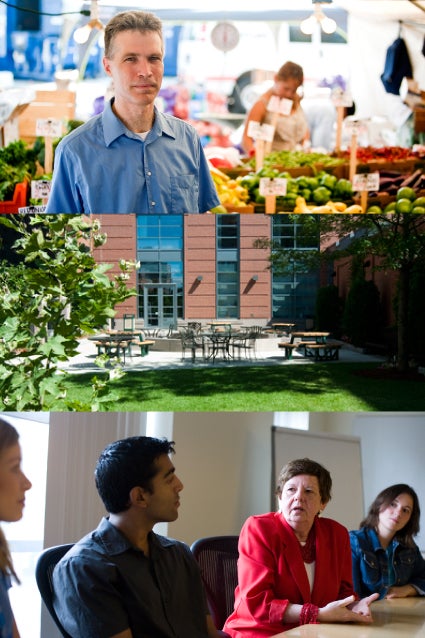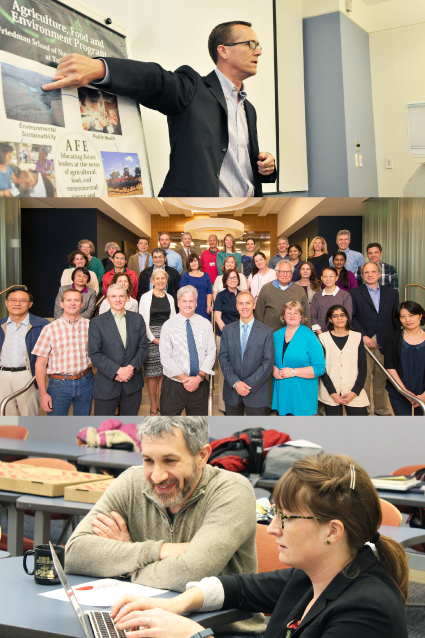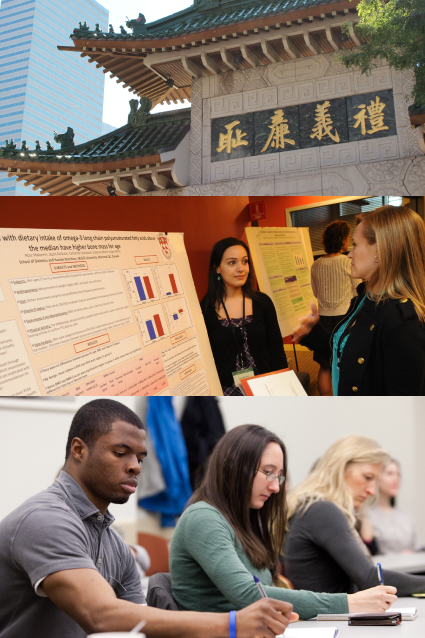The arrival of a new director to the Feinstein International Center at the Friedman School comes just in time for an incredible milestone. The Feinstein International Center (FIC) was founded 20 years ago in 1997, with the initial charge to study the famines and the response to famine.
It is with no small sense of irony that, twenty years on, famine and the widespread threat of famine is back in the headlines. A substantial amount of FIC staff time has, once again, been devoted to seeking to understand the risk (and consequences) of famine— and how to prevent it both in the immediate time frame and in the longer term—in at least four countries.

Gregory Gottlieb served as the acting assistant administrator for the Bureau for Democracy, Conflict, and Humanitarian Assistance (USAID/DCHA). Prior to his appointment, he served as the senior deputy assistant administrator in USAID/DCHA from 2006 to 2008 and again in 2016. He taught at the National War College from 2015 to 2016, and, from 2013 to 2015, was the mission director for USAID/Pakistan. Mr. Gottlieb served as the senior deputy assistant administrator for USAID’s Bureau for Food Security from 2010 to 2013 where he oversaw development activities associated with the U.S. Government’s global hunger and food security initiative known as Feed the Future. He was also a legal protection officer for UNHCR and a chief of party for the USAID-funded Famine Early Warning Systems Network.
In 2017, the global community faces the highest numbers of both acutely food insecure and displaced people on record since the end of World War II.
Mr. Gottlieb began his USAID career in 1988 as the disaster response coordinator in Malawi, subsequently serving in Sudan, Ethiopia and Kenya. In 1999 he established the first regional USAID Office of U.S. Foreign Disaster Assistance in Africa in his role as the senior regional advisor stationed in Kenya. Much of Mr. Gottlieb’s work has focused on improving disaster assistance as well as humanitarian and transition programs promoting economic recovery.
In 2017, the global community faces the highest numbers of both acutely food insecure and displaced people on record since the end of World War II. This is a sobering reminder not only that ever-larger numbers of people continue to be affected by crisis and conflict, but also that work at the Feinstein International Center remains unfinished: the need for solid evidence for decision-making and response is higher than ever. Since 1997, the Center has broadened far beyond its initial remit, and is now an inter-disciplinary research center that seeks to build the evidence base to support and build the resilience of populations at risk across a broad spectrum of geography and hazards. The Center's mandate also includes a call to train a new generation of humanitarian analysts, activists and aid workers in a rapidly changing field.

The Center’s research, teaching and action focus on people affected by conflict, disasters, economic crises, and serious crimes and violations. Feinstein's work continues to emphasize on-the-ground research in crisis-affected locations, in collaboration with local researchers or organizations, and remains tied to global decision-making or resource allocation processes. Students who study with the Feinstein International Center at Tufts University have gone on to work for United Nations agencies, humanitarian organizations, government bodies, or local community-based groups. While we envision a day when research and teaching about humanitarian crises are no longer needed, the global community is far from achieving that vision in 2017.
It is during this crucial time in history that we welcome the vision and leadership of Mr. Gottlieb at the Center. Please join us in welcoming him to Tufts University.







